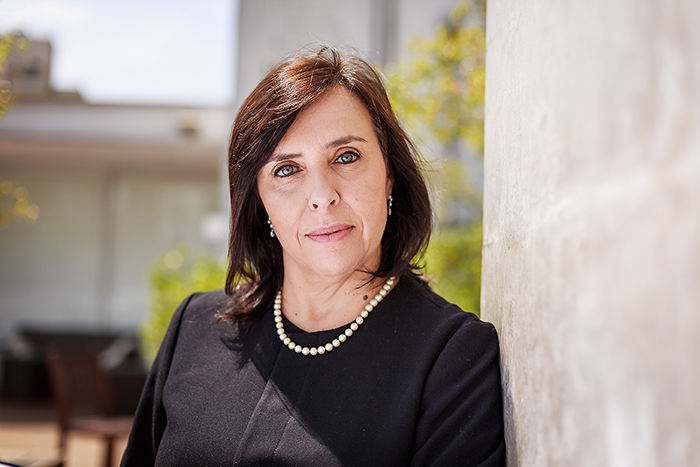Partnership strengthens the education of members of Board of Directors
Aberje and IBGC promote specific training for executives
 Adriane de Almeida
Adriane de Almeida
Over the past few decades, Corporate Communication has become an essential element of the business intelligence process. It has been increasingly structured to take advantage of the potential of new technologies, support itself in intelligent databases, exploit the emergence of new media, and maximize the dialogue between companies and society. In this scenario, Communication is now inserted into the decision-making chain of organizations, their strategic processes, and, above all, corporate governance structures.
The role of a Communication professional in the Board of Directors is vital when it comes to best practices in governance. In this sense, Aberje has established a partnership with the Brazilian Institute of Corporate Governance – IBGC, which has also become part of the network as an associate – to train current and future members of its Deliberative Board.
Paulo Nassar, President of Aberje and full professor at ECA-USP, says that the connections between Aberje and IBGC have already been consolidated in recent years with his participation as a speaker at the annual meeting of the Institute. In the course itself, Nassar was a teacher of the Communication chair for the classes of 2017 and 2018. “Following the planning designed by our executive director, Hamilton dos Santos, Aberje directs to IBGC part of the members of its Deliberative Board every six months to the training, in which they learn the science and art of counseling and governance. The integration of IBGC as a new member of the communication community of companies and institutions represented by Aberje strengthens the understanding that there is no excellent governance without excellent communication”, he says.
 Paulo Nassar
Paulo Nassar
Diversity of skills
The Development Director of IBGC, Adriane dos Santos de Almeida, points out that this partnership is very positive for corporate governance in Brazil by enabling professionals with relevant experience in the corporate world to act on the Board of Directors. “To be a board member, it is imperative to have dealt in executive life with a high degree of complexity. The members of the Deliberative Board of Aberje have a solid background, and professionals like these lead organizations. These executives have the potential to act on other boards and also qualify to make a change in governance culture in the organizations where they act as executives.”
For Almeida, the diversity of competencies is fundamental to the best functioning of the board of directors. “It is important to experiment in marketing, finance or ESG, as it is also relevant to aggregate cultural, regional, ethnic, age, and gender differences.”
She also analyzes that as social media gain importance – whether by publicizing brands, services, or products or demanding image risk monitoring, the presence of professionals sensitive to Communication becomes more critical. “In this sense, the user experience is relevant to digital transformation. This is another domain theme for communication professionals; therefore, these professionals have much to do in companies undergoing digital transformation,” says Almeida.
Although the council, as a collegiate body, has diverse experience, all members must have individual competencies. These include strategic vision, independent judgment, the ability to interpret financial reports, work as a group, and awareness of risk management.
According to Almeida, the Institute does not have aggregated data from Brazilian companies. However, research carried out by the IBGC shows an evolution in the corporate governance of the companies evaluated. Public companies are increasingly adopting the governance practices foreseen in the Brazilian Corporate Governance Code. In 2019, the average adherence rate was 51,1%; in 2020, it rose to 54,3%, and in 2021 it reached 58,7%.
Governance and Reputation
The Corporate Communications and Brand Director of General Motors, Nelson Silveira, was part of the IBGC Board of Directors course. “Thanks to Aberje’s initiative, I had the privilege of living one of the most enriching learnings of my career. The learning involved themes that go far beyond what is traditionally imagined when discussing governance. Because a board member today has to be attentive to emerging themes such as sustainability, diversity, and inclusion, which quickly became hegemonic narratives in society.”
 Nelson Silveira
Nelson Silveira
“It has become impossible to think about building and maintaining a brand’s reputation without focusing the business on clear ESG goals. The environmental, social, and governance pillars should not only structure corporate practices but also define relationships within and outside companies to ensure that the objectives and goals of the organization are achieved,” he says.
Telefonica Vivo’s Corporate Communication Director Elisa Prado follows Silveira’s words by emphasizing that the excellent reputation management of a company is an essential condition for the business’s continuity and engagement of stakeholders. “Offering quality products and services is the basics, the minimum that companies should do. Consumers are looking for more than that and increasingly seeking serious institutions, which they can trust, to be the protagonists in solving social and environmental problems. These themes have become frequent in the boards of directors, and I believe that we communicators have much to support in this journey”, he emphasizes.
“The training course for IBGC counselors has excellent content on this topic and shows the relevant role of the social communication professional in protecting reputation, using ESG criteria, and preventing risks and reputational crises that are frequent in the society in which we live,” added Elisa.
 Elisa Prado
Elisa Prado
Luciana Coen, director of Integrated Communication and Corporate Social responsibility at SAP Brazil, also took the IBGC course. She says the importance of good corporate governance practices in conducting private sector companies and civil society organizations is becoming increasingly evident. “Boards of Directors have existed for decades but often made up of ‘notables’ that were little involved in strategic decisions and were in the council’s role of ‘lending its celebrated names to that entity.’ Today, the global economy and the very high competitiveness and specific regulations make a Board of Directors a fundamental part of the sustainability and sustainability of public, private, large companies and startups,” she says.
“Diversity is a condition for innovation. Thus, Boards need to bring not only gender diversity (the number of women on boards is still minimal) but also generational diversity and, above all, skills diversity. The former council composed of white men over 55 years with training in finance or administration is ineffective today. They are people with the same professional history and mindset and therefore may not bring about innovations and the necessary changes,” she says.
In this context, communicators bring systemic vision, institutional relations, and reputation, adding an integrated look and bringing a new and fundamental dimension to collegiate debates and decisions. “If an organization wants to attract and retain the best professionals in the market, it will need to bring good governance and ethical practices and communicate these best practices. The same rule applies to new consumers, who will not buy products from companies with a bad record and increasingly prefer products with all the best practices of stakeholder relations possible. New skills in advising – not only in Communication but also in people or digital transformation – are fundamental to good governance.”
 Lucian Coen
Lucian Coen
“The Brazilian Institute of Corporate Governance is the great think tank of governance in Brazil. The board members’ training is rich in content, and the debates among students, teachers, and mentors have endless possibilities of personal growth. The amount of resources, readings, and videos on the governance theme is enormous, and networking promoted in face-to-face and virtual events are fantastic,” Coen says. “IBGC promotes best corporate governance practices in Brazil and the world. Personally, many new learning doors have opened, and I have also had the opportunity to bring to debates the importance of Communicator sitting in a board chair, making collegiate decisions in an increasingly diverse team in all aspects.”
The Board members of Aberje who participated are also Antonio Calcagnotto, Vice President of Institutional Relations, Government and Sustainability of Audi; Maria Elisa Curcio, Executive Director of Legal and Institutional Relations of Ypé/Química Amparo; and Gislaine Rossetti, Director of Institutional Relations and Regulatory Affairs of LATAM Airlines Brazil and also President of Aberje’s Deliberative Board. For the second half of 2022, other Board members of Aberje are inscribed to participate in the IBGC training course. They are David Grinberg, Vice President of Corporate Communications Latin America and the Caribbean of Arcos Dorados, and Mario Laffitte, CRO (Chief Relations Officer) of Samsung Latin America.
COMENTÁRIOS:
Destaques
- Sports as an instrument of Change
- Aberje Launches Newsletter with Economic Panorama
- Charting a Path to Responsible Communication: WPRF 2023 Wraps Up in Chennai, India
- Global Alliance AGM elects new Board 2023
- Aberje discloses its positions on the Fake News Bill (PL 2630/2020)
ARTIGOS E COLUNAS
Marcos Santos Maratona da vidaMônica Brissac Thought Leadership: marca pessoal x reputação corporativaLetícia Tavares Liderança comunicadora: um tema sempre atualHamilton dos Santos Comunicação é estratégica na economia contemporâneaCarlos Parente Um salto ornamental para mergulhar no pires




























